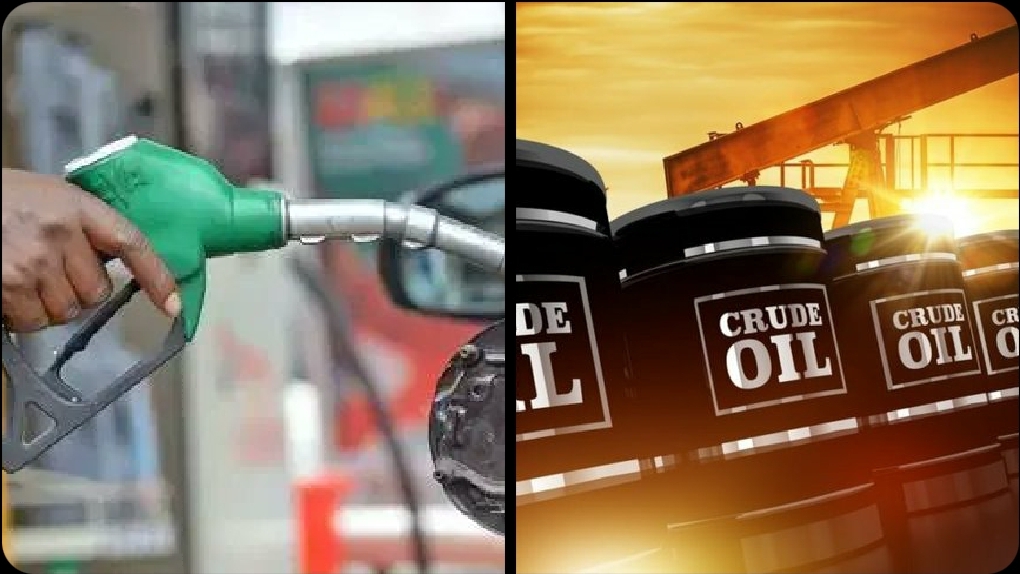
Nigerians to Pay Less for Petrol as Crude Oil Prices Drop to $65 Per Barrel – What You Need to Know

The recent announcement that Nigerians may soon enjoy lower petrol prices due to a decline in global crude oil prices to $65 per barrel has sparked widespread discussion.
Shared by Nigeria Stories on X, this development comes at a time when the country is navigating significant shifts in its oil sector, particularly with new partnerships aimed at reducing reliance on imported fuel.
The news has generated both hope and skepticism among citizens, as many wonder whether this change will truly translate into tangible benefits at the pump.
For a nation like Nigeria, where the economy is deeply tied to crude oil exports, fluctuations in global oil prices have a direct impact on everyday life.
The drop to $65 per barrel is a notable decrease, and in theory, it should lead to reduced costs for petrol, a critical commodity for millions of Nigerians.
This potential relief follows recent strategic moves in the oil industry, particularly involving the Nigerian National Petroleum Company Limited (NNPCL) and the Dangote Refinery, Africa’s largest oil refinery.
These two entities, along with independent oil marketers, have entered into agreements to prioritize local refining over importation of petrol.
The goal is clear: by sourcing fuel domestically, Nigeria can cut down on the high costs associated with importing refined petroleum products, which have long burdened the economy.
The Dangote Refinery, located in the Lekki Free Zone of Lagos, is a cornerstone of this shift.
With a capacity to process 650,000 barrels per day, the refinery has the potential to meet Nigeria’s entire demand for refined products while also producing a surplus for export.
This massive project, which spans 2,635 hectares, is equipped with a 435MW power plant capable of powering an entire electricity distribution company like Ibadan DisCo.
Moreover, its pipeline infrastructure, stretching 1,100 kilometers, is the largest of its kind globally, designed to handle 3 billion standard cubic feet of gas daily.
By reducing Nigeria’s dependence on imported fuel, the refinery promises to save the country billions annually—estimates suggest up to 24 trillion naira ($14.3 billion) each year.
These savings could, in turn, stabilize petrol prices and make fuel more affordable for Nigerians, a prospect that aligns with the recent drop in crude oil prices.
However, despite the optimism surrounding this development, there are significant hurdles that cast doubt on whether Nigerians will see immediate benefits.
One major concern is the state of Nigeria’s existing refineries, all four of which remain nonfunctional. Historically, this has forced the country to rely heavily on imported petrol, even as a leading crude oil producer.
While the Dangote Refinery offers a solution, its full impact on the market is yet to be felt, and the transition to local production must be managed with transparency and accountability.
Experts, as cited in a November 2024 Voice of America report, emphasize the need for strict implementation of these new agreements to ensure that the benefits reach consumers rather than being eroded by inefficiencies or mismanagement.
Public reaction to the news, as seen in the replies to the Nigeria Stories post, reflects a mix of cautious hope and deep skepticism.
Many Nigerians are wary of promises of lower fuel prices, citing past experiences where global oil price drops did not translate into cheaper petrol at the pump.
Some attribute this disconnect to systemic issues within the country’s oil sector, while others see the timing of the announcement as a political move ahead of the 2027 elections.
For now, Nigerians are left waiting to see whether this drop in crude oil prices will truly bring relief or if it will be another unfulfilled promise in the country’s complex energy landscape.


